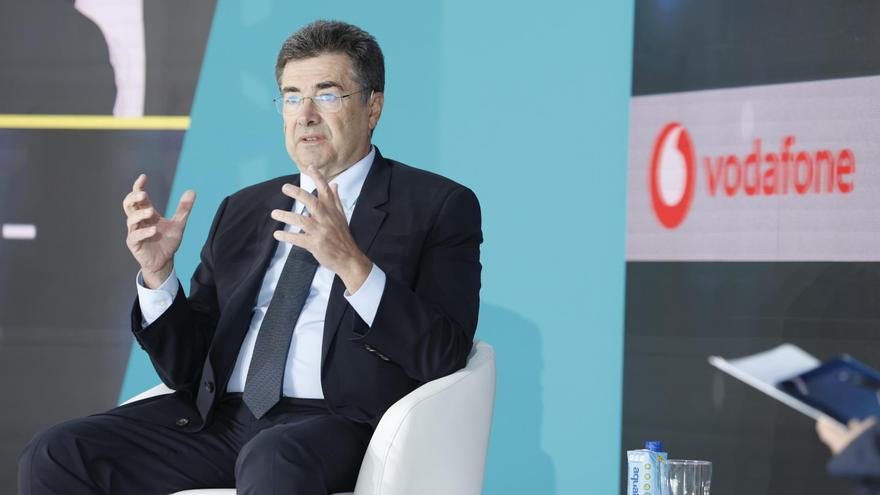ERE VODAFONE | Vodafone’s new CEO defends ERE to reverse years of telecoms ‘decline’ in Spain

new Vodafone is preparing sweeping job cuts as part of a move to clean up the company’s books after a decade of losses. British group Zegona, which took control of Vodafone Spain earlier this month after completing its €5 billion purchase of the company, has provided unions with an employment regulation file (ERE) for a maximum of 1,198 employees. represents almost 37% of the total telecommunications workforce of a total of 3,268 people.
He new CEO of Vodafone Spain José Miguel García, used his speech at telecoms employers’ association DigitalES’ annual congress to defend the introduction of ERE to reverse the “significant decline in business” in recent years. “We need transformation,” he said, to achieve “stability in the customer portfolio because we keep losing customers” and “stability in revenue” in a business that is growing at a slow rate in Spain (2%), “but Vodafone is declining.” Over the past two years, Teleco has lost 8% of its revenue and 400,000 customers in the Spanish market.
Trade union mobilization
José Miguel García, a classic of the Spanish telecommunications sector in which he led companies such as Jazztel or Euskaltel before agreeing to join Vodafone, promised to maintain an “attitude of dialogue” with the unions in the ERE negotiations with the goal being to reach a “satisfactory agreement” for the company and personnel and ensuring “social peace”. Trade unions are currently preparing to mobilize against the cuts.
The unions represented in the group (UGT, STC and CCOO) have already called strikes against ERE during July and are seeking better conditions for those laid off than those offered by the new company management, with compensation in just 24 days. a maximum of 14 monthly payments have been worked out per year, less than half of the conditions agreed upon in the last ERE 2021 in telecom (with a limit of 50 days a year and 33 monthly payments). The unions called a two-day strike on July 9 and 11 and partial strikes for a further six days (July 2, 3, 4, 10, 16 and 17).
Five EREs in a decade
Vodafone Spain is therefore undertaking what will be the fifth ERE that will affect the company in Spain since 2013. Collective layoffs, which, without taking into account the current one, have already collectively led to the departure of about 3,200 employees from the company. In particular, in 2013, the enterprise carried out an electrical emergency, which affected 620 workers, and in 2015 another one occurred, which led to the dismissal of 1,059 people. This was followed by another in 2019, when 1,102 employees left, and in 2021 the workforce was reduced by 442 people.
Vodafone’s new ERE joins other collective layoffs that have occurred in the telecoms sector in recent months, such as at Telefónica and Avatel Telecom. The Telefónica case, finally resolved in February of that year, resulted in the voluntary dismissal of 3,420 workers from its three main subsidiaries in Spain (Telefónica de España, Móviles and Soluciones). Meanwhile, the Avatel Telecom case was resolved just a week ago with the departure of 674 workers, almost 36% of the company’s workforce, and also involves voluntary joining.